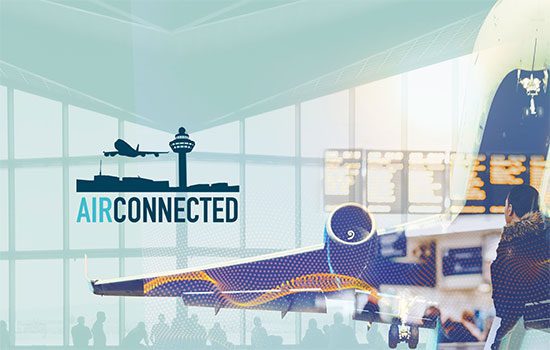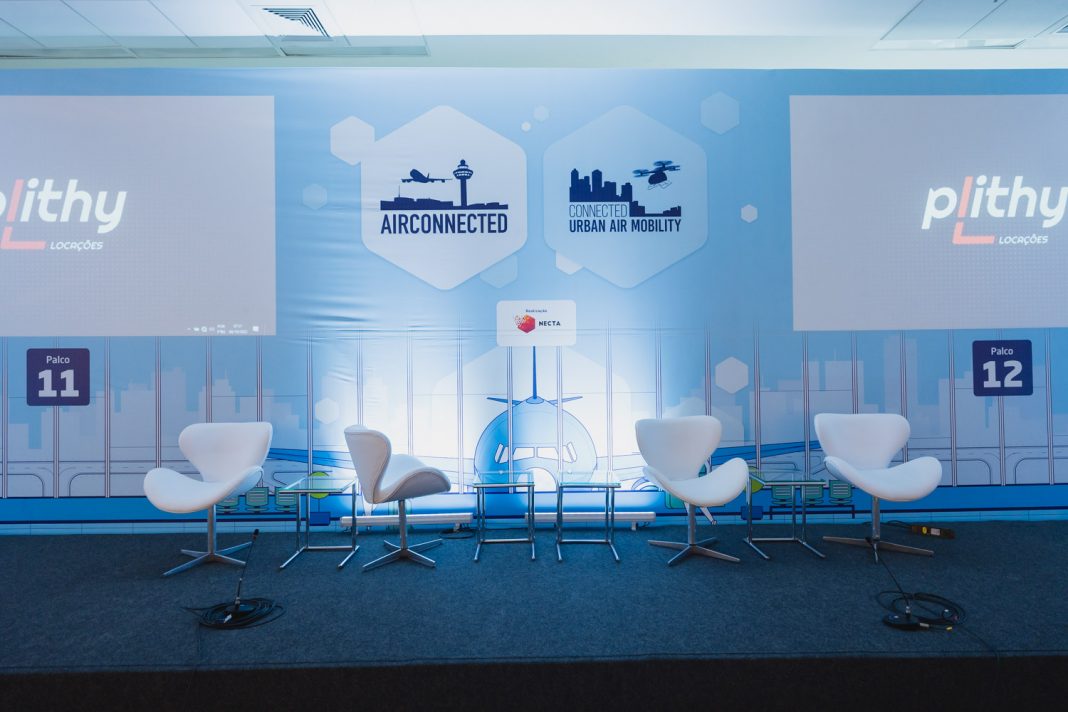Event held this week in São Paulo brought together airlines, aeronautics, public administrations and companies that develop technologies, services and products for the sector
The post-pandemic scenario was one of the themes of AirConnected 2022 – Resilient, Flexible and Technological Air Transport, an event that took place in the São Paulo capital on October 4 and 5, at the Frei Caneca Exhibition Center, in São Paulo, which discussed the airport scenario and the repercussions on urban mobility involving the entire air transport chain.
The event was officially opened with the participation of Paula Faria, CEO and Idealist – Necta and AirConnected, and Ricardo Fenelon, founding partner of Fenelon Advogados, hosts of AirConnected, and followed with an intense program, which addressed the challenges of the airport scenario with the resumption of the demand both in the domestic and international sectors, the pressure of the aviation fuel cost in the composition of airline ticket prices, among other themes that are on the horizon of air passenger transportation.
“Air transport is strategic for the composition of a reality with more mobility in urban scenarios. It can contribute greatly, for example, with the logistics of cargo distribution, participating in the last mile. The presence of so many specialists, businessmen, and representatives from the government and the Armed Forces is an indication of the resilience and commitment assumed by all for the frank development of the sector.
One of the most popular panels was the one that brought together Air Colonel Mauro Carrinho de Moura, from DECEA (Airspace Control Department) – Brazilian Air Force, Rui Amparo, Director of Safety and Flight Operations from ABEAR (Brazilian Airlines Association), Jerome Cadier, CEO – LATAM, and Adalberto Febeliano, Vice Director of Modern Logistics, as mediator, to discuss the perspectives of the airline industry for 2023.
In the view of Colonel Mauro Carrinho de Moura, from DECEA, the reformulations for the optimization of airspace, together with airlines and entities, made it possible to enter this post-pandemic phase with a system more aligned with the new sustainability and efficiency policies. “The modifications made will allow us to meet future demands,” he said.
LATAM’s CEO, Jerome Cadier, alerted to the need to review operational requirements that were defined during the most critical moments of the pandemic and that today have lost their reason for remaining in force. “We still have instructions to operate in certain slots, with the obligation of cleaning the aircraft and the staggered disembarkation. Only the slower disembarkation implies an extra five minutes in the whole operation of each plane, which forces us to use two or three more planes to comply with these measures. We hope they will be modified soon.
Another issue that should be rethought is the one involving baggage check-in charges. “The baggage policy should be reviewed. We must have the ability for airlines to price this service freely. We hope that all of us – government, airlines and passengers – align ourselves on the dynamics of the operation, as happens all over the world, in which the passenger pays for the service he or she chooses, with bag or without bag.”
As for 2023, Cadier is optimistic. Aviation is in a more normal world. Domestic flights are already operating at very similar levels to before the pandemic; in international, however, it will take another 18 months to regain the same level as in 2019, he said. Latam’s CEO stated that the crisis is not over yet and companies such as LATAM are still operating below the level of the previous year. Even with the crisis in Ukraine and the impact on the price of aviation fuel — we cannot forget that between 40-45% of our costs are fuel — we believe that this situation tends to be solved or better addressed in the future,” he said.
The Director of Flight Safety and Operations at ABEAR (Brazilian Airline Association), Rui Amparo, expressed moderate optimism for 2023. “The optimism comes from the heated demand, but also from the crisis management that was put in place right in the first moments of the pandemic, in addition to the ability to keep in memory the practices and solutions found. We are all ‘rusty’; we need to learn to deal with this new reality. We believe that medium and long-term planning as of 2023 is more than necessary,” he concluded.

Connected Urban Air Mobility
In 2022, AirConnected had a new feature: the launch of Connected Urban Air Mobility (CUAM), connecting the new air mobility solutions, such as eVTOLs and electric regional aircraft, with the discussion of the air transport chain, cities and urban mobility, simultaneous and complementary events to CUAM.
In addition to advancing technology, the transportation sector is undergoing major changes, and the aerospace industry is paying attention and following these changes, despite being the hardest hit of the sectors. As governments introduce new measures for companies to reduce their carbon footprint, regional air mobility will be the next disruptive trend in transportation.
Connected Urban Air Mobility discussed the market development, with experts and participation from OEMs (Original Equipment Manufacturer), aviation authorities and regulators, transportation providers, investors, startups, hardware and software companies, government, regulatory bodies and trade associations, consultants, academia and air traffic management.
*** Translated by the DEFCONPress FYI Team ***
